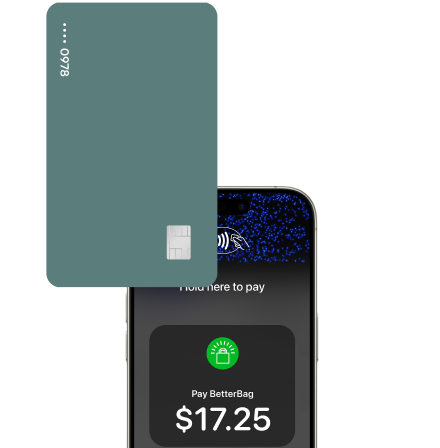Accepting credit cards is essential for any business. Customers are more likely to spend money [1] Forbes. “People Are Twice As Likely To Spend Moore Money When Using Card Than Cash“. Accessed August 8th, 2025. using cards rather than cash. However, an increase in credit card usage can put pressure on a business’s margins, as merchant service providers charge fees for processing payments. Consider no-fee credit card processing if your organization wishes to reduce overhead.
Key Takeaways
- No-fee credit card processing is a practice designed to minimize overwhelming credit card processing fees.
- There are variations on this type of model: cash discount programs, surcharging, and zero-fee processing.
- If you plan on implementing zero-cost processing for your business, you will need a POS system that supports this model.
While many merchant service providers advertise no-fee credit card processing, it’s not always the most desirable option. While zero-fee processing allows businesses to avoid credit card fees, it ultimately passes the cost back onto the consumers. This pass-through approach can lead to negative customer sentiment. Still, if credit card fees are a burden on your business, this price model is worth exploring.
This guide explores how no-fee credit card processing works, the differences between surcharging and no-fee credit card processing, the cheapest way to accept credit card payments, and other related topics. Read on to explore methods your business can use to reduce payment processing costs.
What is Zero-Fee Processing?
Zero-fee processing is a pricing model that eliminates or limits a business’s exposure to credit card processing fees. Traditionally, when customers pay for goods and services with a credit card, the merchant pays a fee to the credit card processor for facilitating the transaction. With no-fee credit card processing, businesses charge customers for using their credit cards by adding a surcharge to a purchase.
This cheap credit card processing strategy can benefit businesses in two ways. First, it ensures the merchant doesn’t have to pay the processing fees. Second, it encourages customers to pay with cash.
How Does No-Fee Credit Card Processing Work?
How no-fee credit card processing works depends on your payment processor and POS provider. However, in most cases, it resembles the following process:
- Step 1: A customer proceeds to the checkout counter to pay for goods or services.
- Step 2: The business notifies the customer of a surcharge for use of a credit card. This will typically include signage outlining the surcharge amount. For example, a sign may read: “All credit card transactions carry a 5% surcharge.”
- Step 3: The merchant’s POS system automatically adds a surcharge to cover the payment processing costs. This step ensures that the process is swift and doesn’t involve manual calculations from staff members.
- Step 4: The customer pays the order total, including the surcharge. The surcharge revenue covers the cost of the payment processing fees incurred from the transaction.
Differences Between Surcharging and No-Fee Credit Card Processing
If you’re exploring avenues for reducing your credit card processing fees, you’ve probably encountered the terms no-fee credit card processing and credit card surcharges. These terms refer to the same pricing strategy.
No-fee credit card processing involves surcharging customers to cover transaction fees. When someone refers to no-fee credit card processing, they refer to a surcharging program.
Another pricing strategy that merchants sometimes use to minimize small business credit card processing fees is a “cash discount program.” With a cash discount program, customers using credit cards pay the listed price for a product or service, while customers paying with cash receive a pre-set discount.
Legal Considerations to Zero-Fee Credit Card Processing
If you want to implement zero-fee credit card processing, there are legal ramifications to consider. Firstly, you cannot surcharge debit card transactions — only credit cards are eligible for no-fee credit card transactions. Secondly, surcharging is not legal in some states. These states include:
- Connecticut
- Massachusetts
Similarly, some states that don’t ban surcharging outright still uphold regulations restricting aspects of its use. States with partial restrictions include:
- California
- Florida
- Kansas
- Maine
- New York
- Texas
Best Types of Businesses for No-Fee Merchant Services
Let’s explore some business types suitable for no-fee merchant services:
Low-margin businesses
- If your business operates in a low-margin industry, processing fees can significantly impact profitability.
- To keep margins viable, some low-margin businesses consider no-fee merchant services.
Cash-heavy businesses
- While only one in five payments is made with cash in the US, not all businesses have the same cash payment rates.
- If your customers prefer using cash, you will lose less if you surcharge them for credit card payments.
Enterprise businesses
- Enterprise businesses are often complex in nature and large in scope.
- Enterprise businesses processing substantial volumes pay significant amounts of money in processing fees.
- These businesses can generate considerable revenue when they pass these costs onto customers.
High-risk businesses
- Businesses in high-risk industries face higher credit card processing fees.
- Merchant account providers charge more fees to high-risk businesses as they face increased chargeback rates.
- By passing payment processing fees onto customers, high-risk businesses can avoid the costly nature of high-risk transactions.
Point of Sale (POS) System Requirements
If your business implements no-fee credit card processing, it must also use a compatible point of sale (POS) system. Ensure it comes equipped with surcharging features to automate key parts of the process.
Did you know…
Your POS system must automatically add a surcharge to the order total of anyone using a credit card for payment.
Issues may arise if you can’t access a POS system that can safely automate the surcharging process. First, your staff will have to manually add surcharges to transactions, which can slow down the purchasing process. Second, manual entry exposes your business to a potential margin for error, which may result in additional costs and unhappy customers.
Reducing Costs and Hidden Fees
While no-fee credit card processing might sound helpful in terms of reducing your costs, it can also potentially harm your business’s reputation. Modern consumers expect hassle-free credit card payments. Moreover, these same consumers don’t want to pay fees for using their preferred payment method. Fortunately, there are some tips and tricks to reduce costs and hidden fees:
Use a dedicated merchant account
This tactic helps merchants access more optimal payment processing fees. Many merchants with dedicated merchant accounts have access to Interchange Plus pricing, which tends to be more affordable than flat-rate and tiered pricing.
Take chargebacks seriously
Chargebacks occur when a customer disputes a payment. An example could be a stolen credit card being used for illegitimate purchases.
Unfortunately, merchant service providers charge fees for chargebacks. Accumulating too many payment disputes may result in higher processing costs. By taking payment security seriously and reducing exposure to chargebacks, your business can maintain affordable payment processing fees.
Review your merchant agreement
Take a look at your merchant agreement to check if there are any hidden fees or charges. Some payment processors add fees to increase revenue. Many merchants don’t realize they’re overpaying for processing. So, what are some examples of hidden fees?
Monthly Minimum and Statement Fees
- Monthly Minimum Fees: Some merchant account providers charge fees if you don’t process a monthly minimum. If you happen to run a low-volume business, this is likely damaging your company’s bottom line. Remember: be smart and do your due diligence.
- Statement Fees: Certain MSPs charge statement fees. Merchants should maintain a healthy skepticism regarding this fee, since statements are now primarily digital.
PCI Compliance and Retrieval Fees
- PCI Compliance Fees: Merchant account providers may charge PCI compliance fees. However, this charge is redundant: all providers must maintain PCI compliance.
- Retrieval Fees: Merchant account providers occasionally charge retrieval fees when a merchant requests information about a specific transaction or statement period. However, some merchant account providers with robust customer service departments don’t charge a fee for assisting merchants.
Assessing the fees within your merchant agreement is a helpful way to determine whether your business is overpaying to process credit card transactions. If you believe your merchant service provider uses hidden fees to drive up your costs, contact them for clarification.
Compare multiple merchant service providers
Finally, you’ll want to compare multiple payment providers before you sign up for credit card processing services. If you feel your business currently pays too much for payment processing, it’s likely because you have never compared your merchant service provider to its competitors. You can request multiple quotes to find the cheapest processing options.
Final Thoughts on Free Credit Card Processing
Zero-fee credit card processing helps businesses reduce exposure to credit card processing fees. However, with more than 60% of consumers stating they’re more likely to shop [2]CIO. “Consumers Want More Payment Flexibility In Their Shopping Experience” Accessed August 8th, 2025. with a business offering their preferred payment method, adding a surcharge to credit card transactions is definitely risky. Unhappy customers can impact your bottom line much more than payment processing fees.
Whether you choose to use free credit card processing for small businesses or not, partnering with a merchant service provider you can trust is critical. A reputable merchant account provider offers dedicated support, lower processing fees, chargeback prevention tools, and a host of other benefits. Choosing the right payment processor is the best way to keep your processing costs low!
Frequently Asked Questions
How much does it cost a business to accept credit cards?
Credit card processing costs vary significantly depending on the business, industry, credit card processor, and other factors. With some payment service providers (PSPs), credit card processing fees can exceed 4%. However, most businesses’ cheapest payment processing fees range between 1.5% and 3.5%. To access the lowest credit card processing fees, use a dedicated merchant account and compare multiple merchant service providers before signing a merchant agreement.
How to avoid merchant credit card fees?
have two primary options: a surcharge program or a cash discount program. With a surcharge program, you add a cost to the order total for anyone using a credit card to complete payment. With a cash discount program, you offer a discount to customers paying with cash while charging full price to anyone using a credit card. If your state has any cash discount or surcharge regulations, proceed accordingly.
How do zero-fee credit cards make money?
Zero-fee credit cards make card issuers money in various ways. While zero-fee cardholders might not pay annual fees to maintain the credit card, they pay interest if they carry a balance, and fees if payments are late. Likewise, card issuers receive money from payment processing fees. So, there’s profit available to issuers even if the cardholder pays their balance in full and on time.
Is it legal for companies to charge credit card processing fees?
The legality of companies charging customers for credit card processing fees varies depending on the state. In most states, implementing a surcharge for using a credit card is legal. However, in Massachusetts and Connecticut, charging customers for using credit cards is against the law. Likewise, there are partial restrictions on charging customers for using credit cards in Texas, California, Florida, Kansas, Maine, and New York.
What are the potential downsides of no-fee credit card processing?
Customers may be put off by the idea of paying an extra fee, especially if it’s added to an already high-ticket item. It may cost you business if they don’t feel the product or service is worth the additional charge.
What are the potential downsides of no-fee credit card processing?
Customers may be put off by the idea of paying an extra fee, especially if it’s added to an already high-ticket item. It may cost you business if they don’t feel the product or service is worth the additional charge.
You should also consider state-specific laws regarding surcharging. These laws can vary between states, with some outlawing it altogether. As a business owner, you must perform diligent research to ensure you comply with the regulations if you choose the no-fee credit card processing option.



























